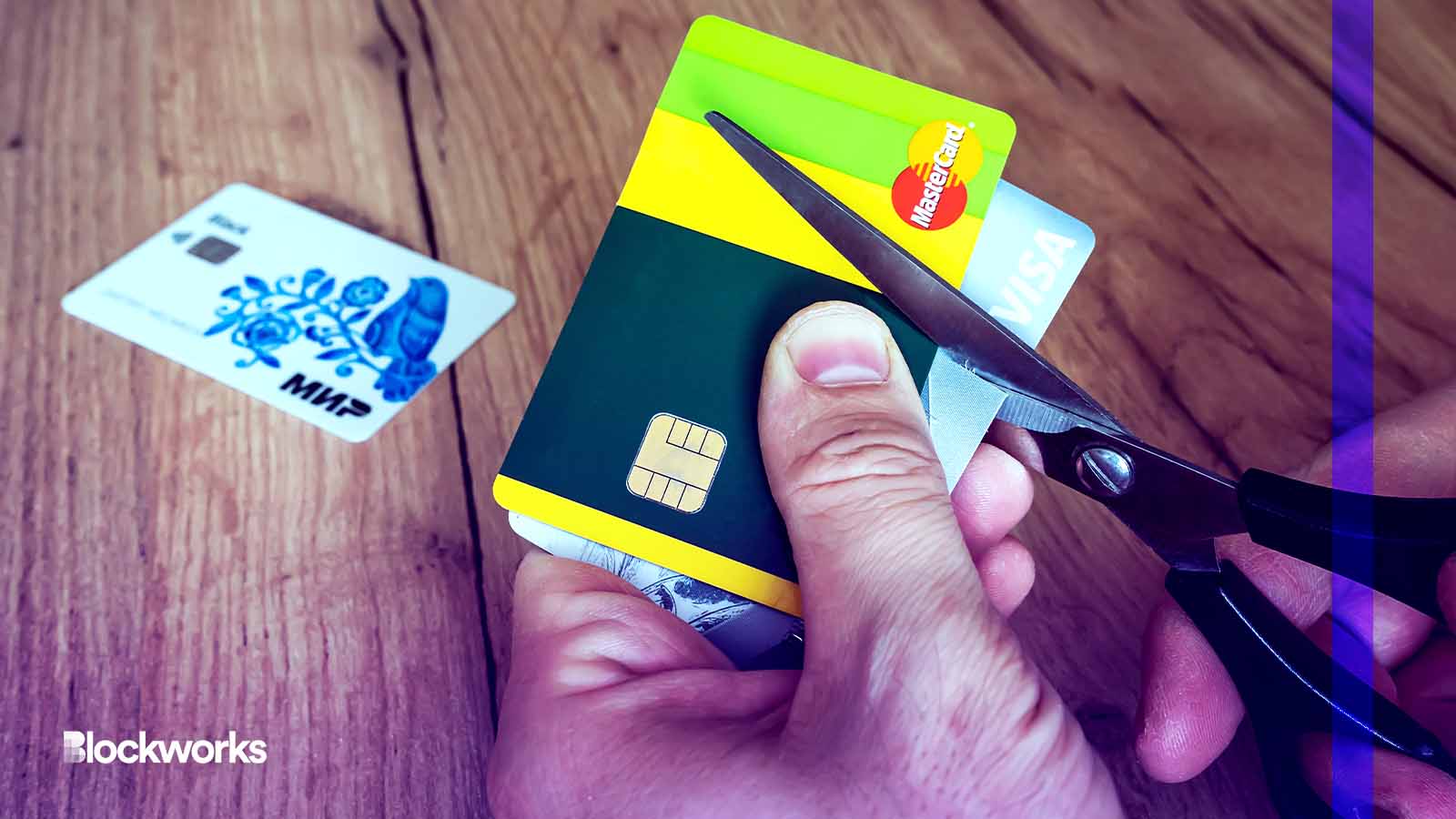Mastercard, Binance to end crypto-card partnership in September
Binance stopped accepting new applications for the Visa co-branded card in July

Melnikov Dmitriy/Shutterstock modified by Blockworks
Binance appears to be scaling back its card partnerships, with Mastercard terminating its collaboration and the crypto exchange temporarily halting new applications for its Visa-supported European card.
A Mastercard spokesperson confirmed that the card pilot programs it had with Binance — located in Argentina, Brazil, Colombia and Bahrain — would shutter on September 22.
“Binance accounts around the world are not affected. Where available, users can also shop with crypto and send crypto using Binance Pay, a contactless, borderless and secure cryptocurrency payment technology designed by Binance,” a Binance spokesperson told Blockworks.
The ending of the program will impact “a tiny portion” of the users in the markets, they continued, adding that roughly 1% will be affected.
Mastercard and Binance inked the crypto card deal in Argentina in August 2022. It launched the card in Brazil earlier this year.
In addition to the closing of the co-branded Binance Card, a Binance spokesperson also confirmed that Binance “paused new card applications for the EEA” for its co-branded card with Visa back in July.
However, Binance added that “this does not impact existing cardholders who can continue to use and reorder their cards.”
Visa did not immediately respond to a request for comment.
Back in March, both Mastercard and Visa signed new debit card partnerships with crypto companies, including Bit2Me and Bybit. Mastercard reaffirmed its crypto commitment back in April as it continued to team up with both crypto and blockchain firms.
Payments service provider Checkout.com ended its partnership with Binance earlier this month. A Forbes report cited regulatory concerns on Checkout.com’s end, and Binance told Blockworks that it was mulling “options for legal action.”
Binance has recently faced scrutiny from various regulators worldwide. In the US, Binance is facing off with both the Commodities Futures Trading Commission (CFTC) and the US Securities and Exchange Commission.
It’s also reportedly faced an investigation by French authorities, though a Binance spokesperson told Blockworks that, back in June, the French authorities just made an “on-site visit.”
Additionally, Binance has exited multiple European markets and pulled its application with Germany’s BaFin. It cited both the regulatory landscape and the global market as part of the decision. The exits came after the European Union passed the Markets in Crypto Assets regulatory framework.
Get the news in your inbox. Explore Blockworks newsletters:
- The Breakdown: Decoding crypto and the markets. Daily.
- 0xResearch: Alpha in your inbox. Think like an analyst.






